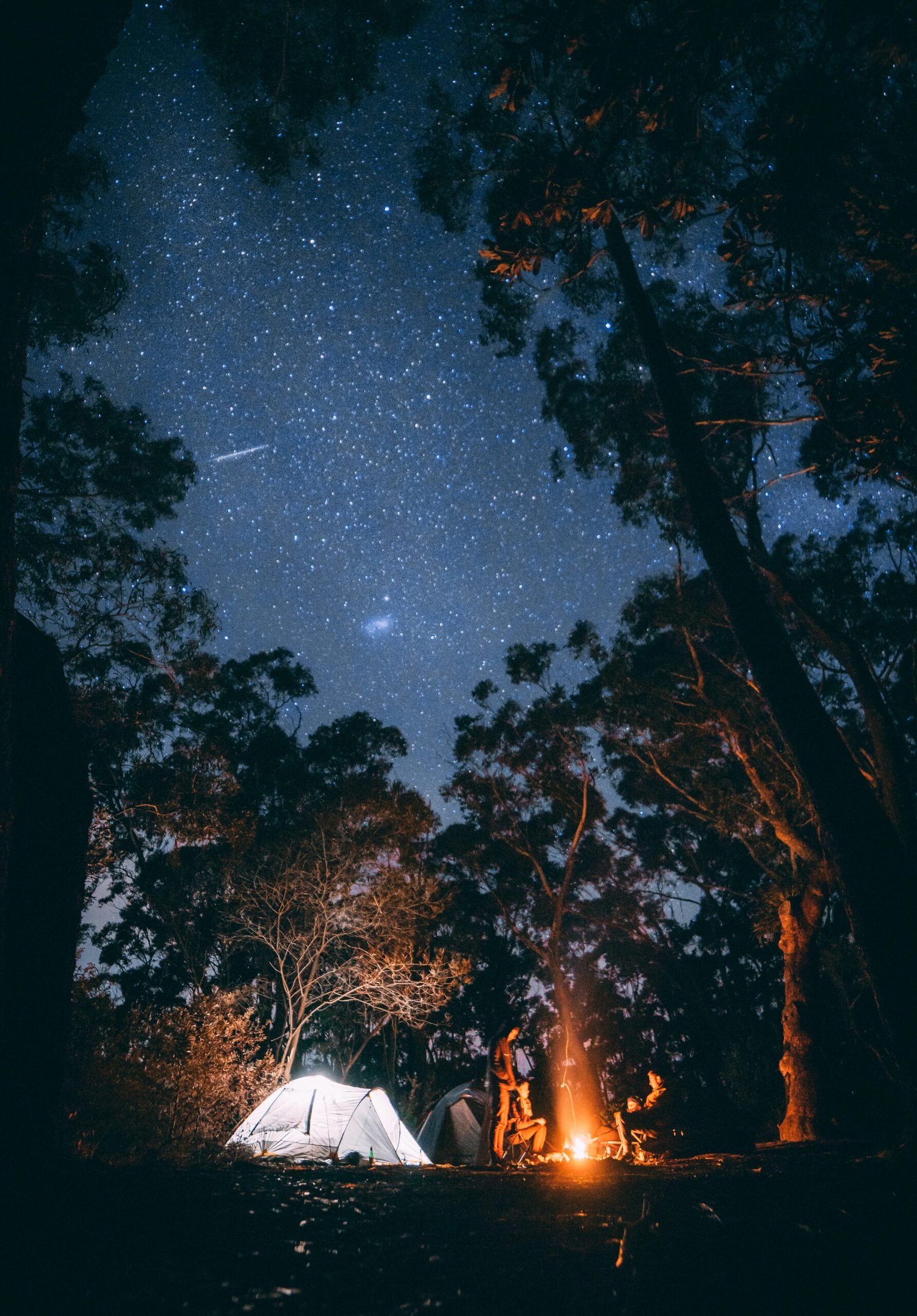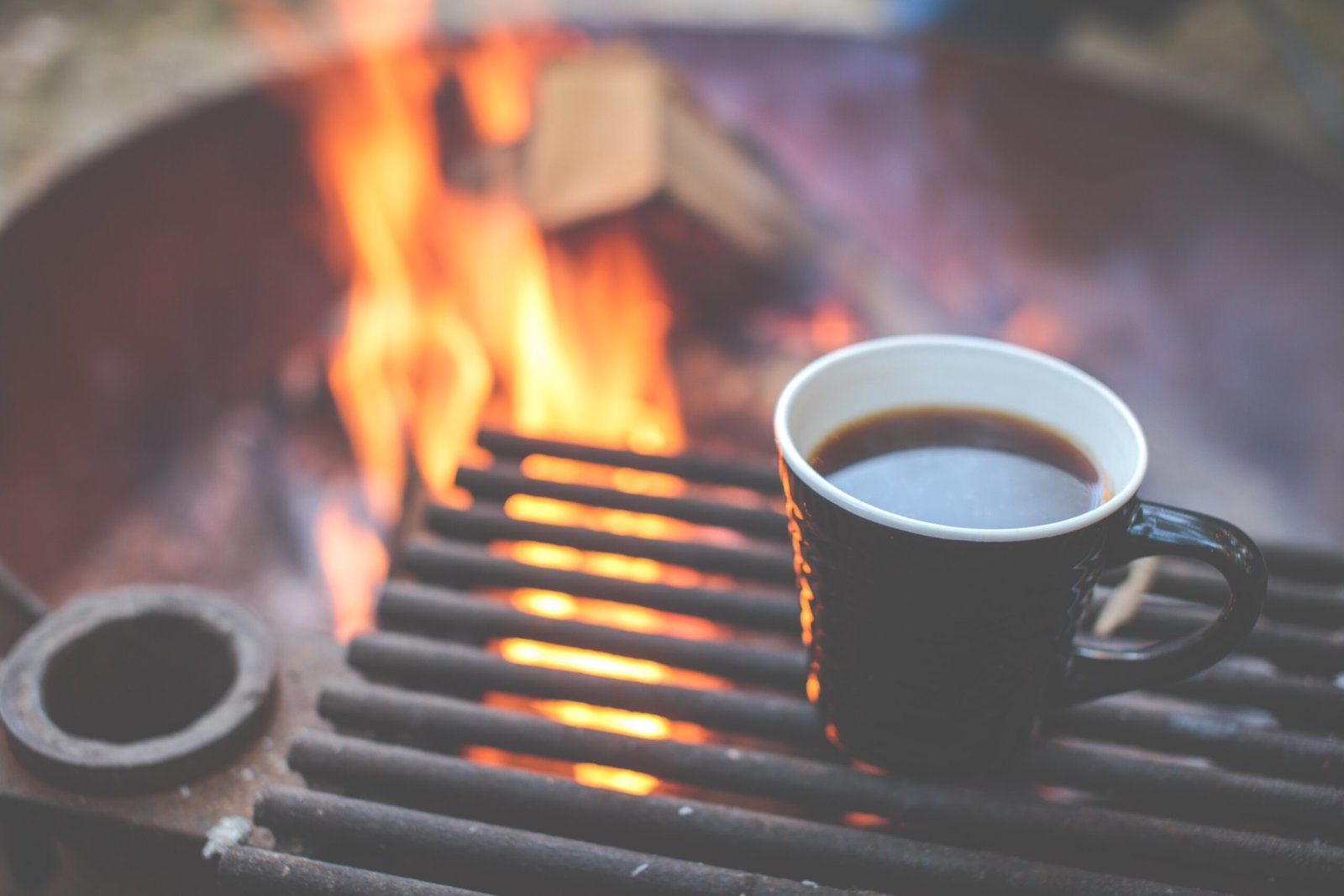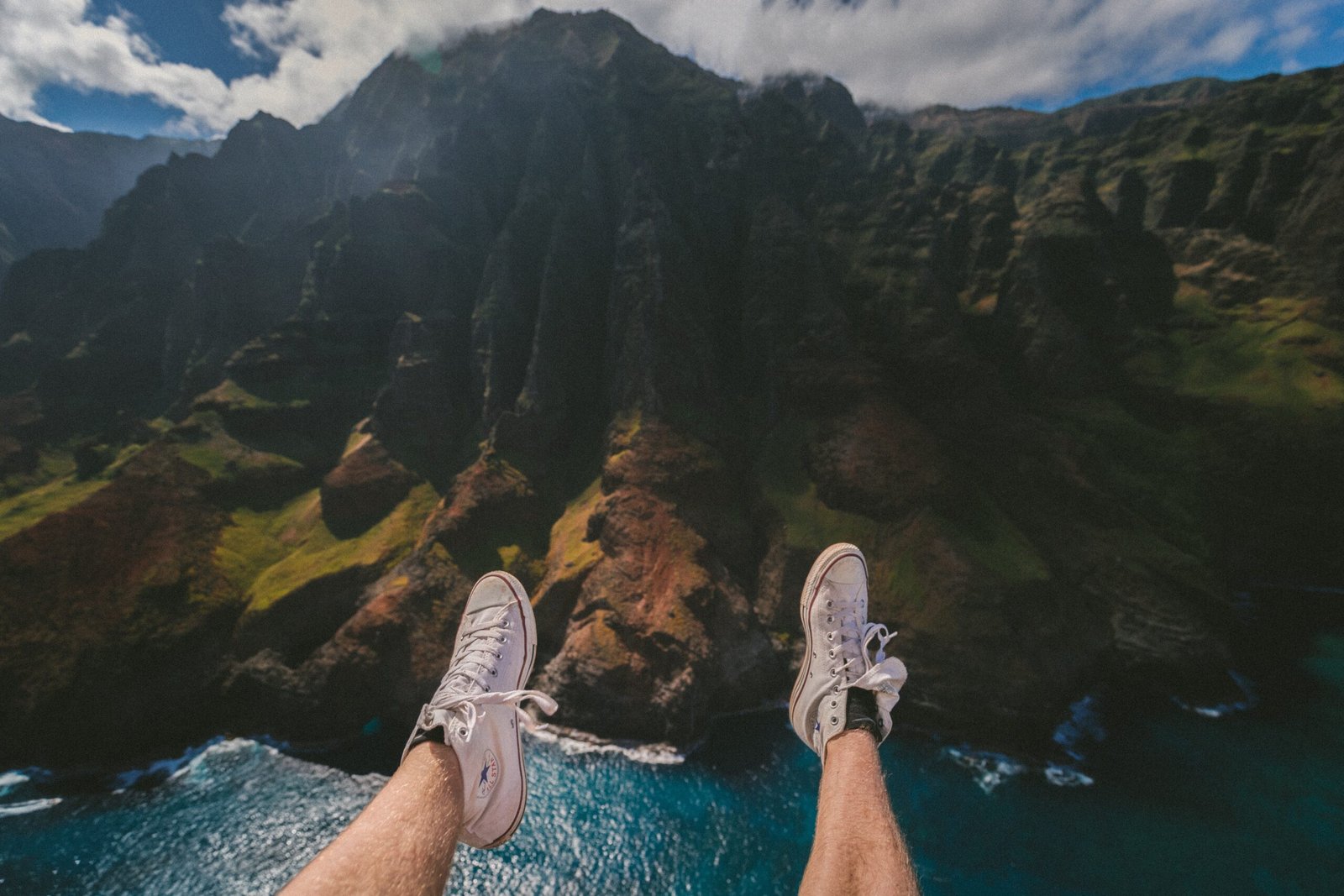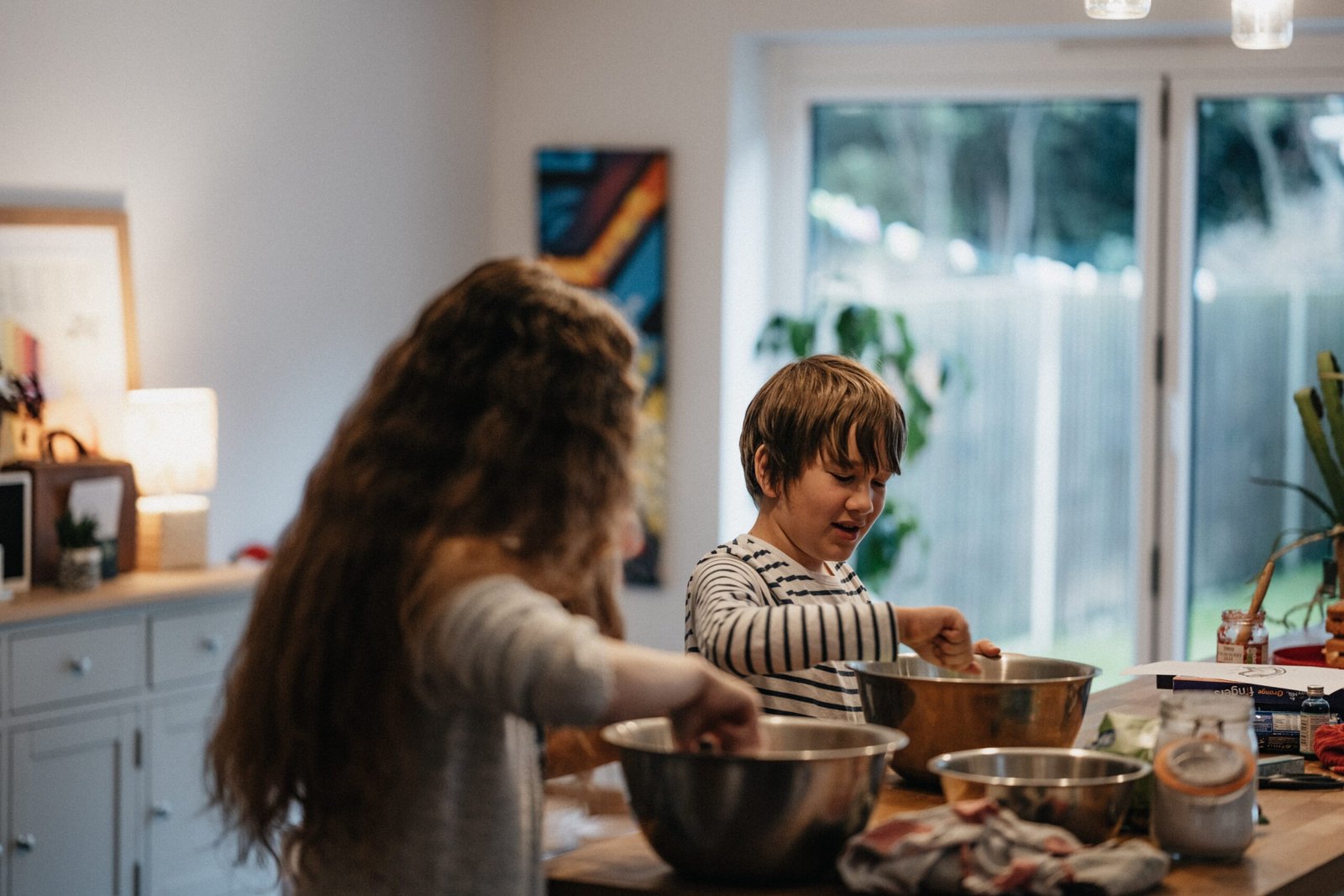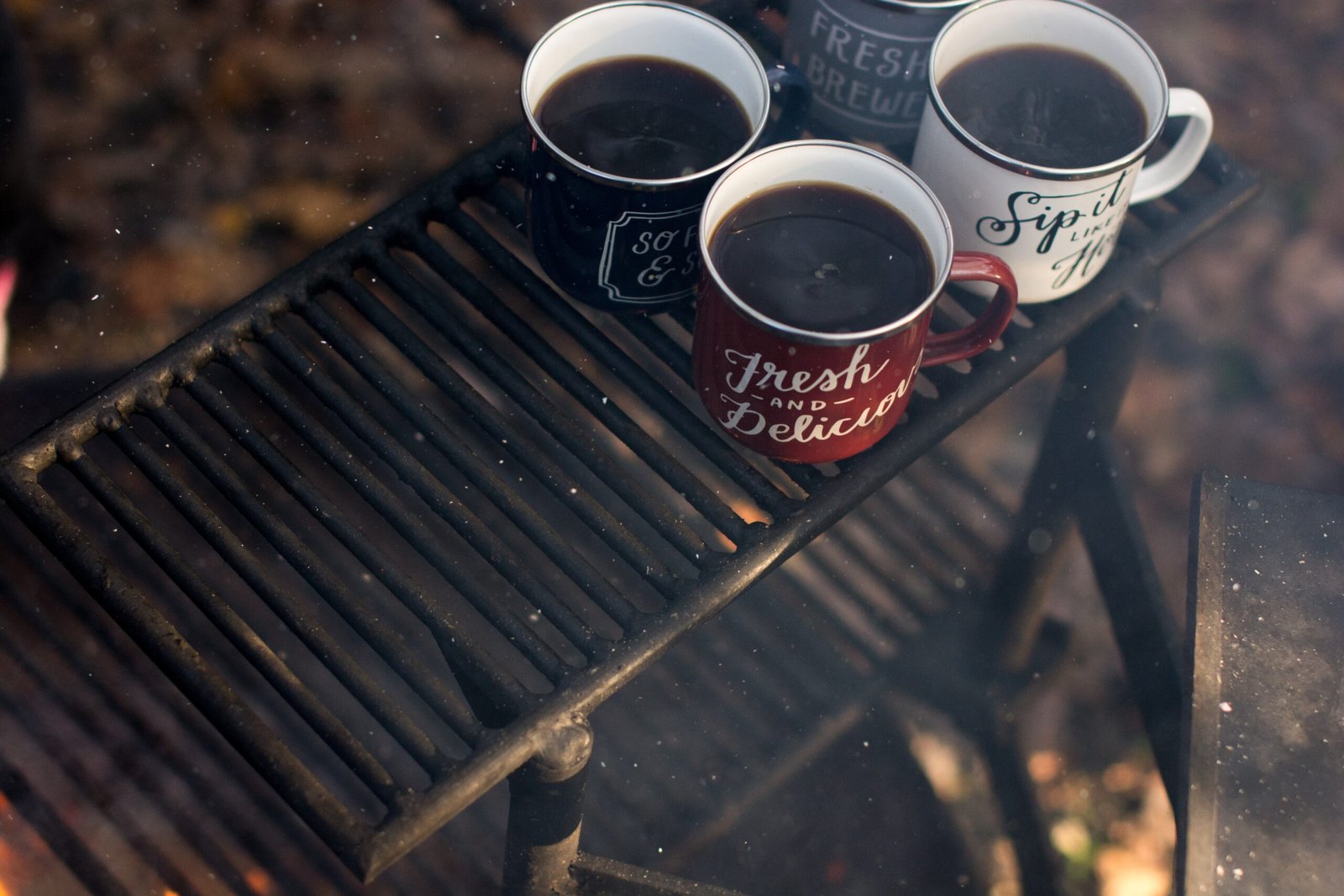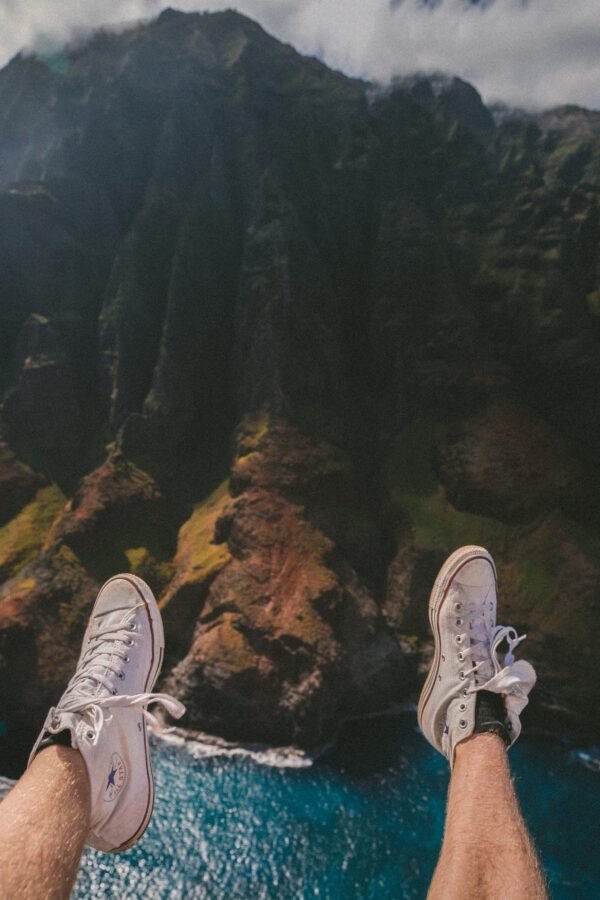Camping is an outdoor activity that can be enjoyed by all, regardless of age or level of outdoor experience. With the right tips and preparation, even those who may not consider themselves outdoorsy can have an enjoyable camping experience. From securing and storing food properly to bringing air mattresses for a comfortable night’s sleep, there are various general tips that can enhance the overall camping experience. Furthermore, involving children in the planning process, bringing games and toys, and even providing them with a bug catcher can make camping a fun and educational adventure for the younger ones. For those camping with a significant other who may not be as fond of the great outdoors, making it a group event, ensuring comfortable sleeping arrangements, and exploring options like cabin or RV camping can be a happy and accommodating compromise. Choosing a campground with activities and amenities, such as dog-friendly areas and nearby restrooms, can also contribute to a more enjoyable and stress-free camping experience. By following these helpful tips and putting thought into the planning process, anyone can create lasting memories and find joy in the wonders of camping.

General Tips for Enjoyable Camping
Camping can be enjoyable for everyone with the right tips and preparation. Whether you are a seasoned camper or a beginner, following some general guidelines can enhance your camping experience. Here are some general tips to make your camping trip enjoyable and stress-free.
Securing Food
One of the essential aspects of camping is securing food. It is vital to plan your meals and bring enough food to sustain yourself throughout your camping trip. Make sure to pack non-perishable items such as canned goods, snacks, and dry foods. Consider using coolers or insulated containers to keep perishable items fresh. It is also important to store your food properly to prevent attracting wildlife. Keep all your food items sealed and stored in airtight containers to avoid any unwanted visitors in your campsite.
Bringing Air Mattresses
For a comfortable camping experience, bringing air mattresses is highly recommended. Sleeping on the hard ground can lead to an uncomfortable night’s sleep and leave you feeling sore in the morning. Air mattresses provide a soft and cushioned surface, giving you a more restful sleep. Make sure to bring a pump to inflate and deflate the air mattress easily. Investing in a high-quality air mattress can significantly improve your camping experience.
Cooking on the Fire
Cooking meals over the open fire is an integral part of the camping experience. It is important to learn how to build and maintain a campfire safely. Follow any fire restrictions or guidelines set by the campground or park authorities. Make sure to bring a suitable cookware set and utensils for cooking over the fire. Cast iron skillets and grills work well for campfire cooking. Remember to bring oven mitts or thick gloves to handle hot cookware. Practice proper fire safety and always extinguish the fire completely before leaving your campsite.
Creating a Shared Playlist
Adding music to your camping experience can create a lively and enjoyable atmosphere. Create a shared playlist with your camping companions to enhance the camping ambiance. Include a wide variety of songs that everyone can enjoy. Consider bringing portable speakers or a Bluetooth speaker to play your playlist. However, it is important to be mindful of other campers and respect quiet hours if they are enforced in the campground.
Finding Dog-Friendly Campgrounds
For pet owners, finding dog-friendly campgrounds is crucial to include your furry friends in the camping experience. Many campgrounds have specific areas designated for pets. Make sure to check the rules and regulations of the campground regarding pets. Keep your dogs on a leash at all times and clean up after them. Remember to bring essential items for your pets, such as food, water, bowls, and bedding. A well-prepared and well-behaved pet can make camping even more enjoyable.
Staying Close to Restrooms
While camping in the wilderness offers a unique experience, it is essential to consider the proximity to restrooms. Having access to restrooms can make your camping trip more convenient and comfortable, especially if you are camping with children or individuals with specific needs. Look for campgrounds that have well-maintained restroom facilities nearby or consider camping near a water source to facilitate cleanliness and hygiene.
Choosing a Campground with Activities
To make your camping trip more enjoyable, consider choosing a campground with various activities. Campgrounds often have hiking trails, fishing spots, and recreational areas that offer a range of outdoor activities. Research and select a campground that aligns with your interests and preferences. Engaging in activities such as hiking, bird watching, or fishing can enhance your camping experience and allow you to connect with nature.
Tips for Camping with Kids
Camping with kids can create lasting memories and instill a love for the outdoors. However, it requires some additional planning and preparation to ensure a fun and safe experience for everyone. Here are some tips for camping with kids to make the trip enjoyable for the whole family.
Involving them in the Planning Process
Engage your children in the planning process to get them excited about camping. Let them help choose the destination, select activities, and pack their own camping gear. This involvement gives them a sense of ownership and fosters anticipation for the trip. Additionally, educating them about the camping environment and wilderness safety can make them more aware and prepared for the experience.
Bringing Games and Toys
To keep your kids entertained during downtime at the campsite, bring along a variety of games and toys. Outdoor games like frisbee, football, or badminton can provide entertainment and encourage physical activity. Board games and card games can be enjoyed inside the tent during rainy or quiet moments. Additionally, packing toys such as bikes, scooters, or balls can offer additional ways to keep kids engaged and active.
Giving them a Bug Catcher
Children are naturally curious about nature, and camping presents an excellent opportunity to explore the outdoors. Give your kids a bug catcher to observe and study insects they may encounter during your camping trip. This hands-on experience allows them to learn about different species and appreciate the biodiversity of the environment. However, it is crucial to teach them about handling insects safely and releasing them afterward.
Spicing up S’mores
S’mores are a classic camping treat loved by kids and adults alike. Put a twist on this traditional snack by providing a variety of toppings to personalize each s’more. Offer options such as flavored marshmallows, different types of chocolate, or unique spreads like peanut butter or caramel. Let your kids get creative and experiment with combinations for a fun and delicious campfire experience.
Tips for Camping with a Non-Outdoorsy Significant Other
Camping with a significant other who is not fond of the outdoors may require some compromises and considerations. However, with proper planning and communication, you can still have an enjoyable camping experience together. Here are some tips for camping with a non-outdoorsy significant other.
Making it a Group Event
To make the camping trip more appealing to your non-outdoorsy significant other, consider making it a group event. Invite friends or family members who are avid campers or share a similar interest in outdoor activities. The presence of others with more enthusiasm for camping can create a supportive and enjoyable atmosphere, encouraging your significant other to participate and engage in the camping experience.
Ensuring Comfortable Sleeping Arrangements
Comfortable sleeping arrangements are vital to ensure a good night’s sleep for your non-outdoorsy significant other. Consider investing in a high-quality air mattress or camping cot to provide a more comfortable sleeping surface. Bring extra blankets and pillows to create a cozy and inviting sleeping area. You can also consider bringing a portable fan or heater, depending on the weather conditions, to regulate the temperature and provide added comfort.
Considering Cabin or RV Camping as a Compromise
If your significant other is hesitant about sleeping in a tent, consider alternative camping options such as cabin or RV camping. Renting a cabin or RV provides a more comfortable and familiar environment, bridging the gap between the outdoors and indoor comfort. Cabins often offer amenities such as beds, kitchens, and bathrooms, while RVs provide the convenience of mobility and self-contained living arrangements.
Packing Essentials for an Enjoyable Camping Trip
Proper packing is essential for an enjoyable and stress-free camping trip. Having the right gear and essentials can make a significant difference in your camping experience. Here is a list of packing essentials to consider before heading out on your camping adventure.
Tent and Sleeping Bags
A reliable tent is crucial for shelter during your camping trip. Choose a tent that is suitable for the number of people camping and the expected weather conditions. Additionally, consider investing in high-quality sleeping bags that provide warmth and comfort. Opt for sleeping bags designed for the appropriate temperature range to ensure a restful night’s sleep.
Cooking and Eating Utensils
To prepare and enjoy meals at your campsite, bring cooking and eating utensils. Consider packing a portable stove or grill if campfire cooking is not feasible or allowed. Include pots, pans, plates, bowls, utensils, and cups for cooking and serving meals. Don’t forget essential items like a can opener, cutting board, and a sharp knife for food preparation.
First Aid Kit
Safety should always be a top priority while camping. Pack a well-stocked first aid kit that includes essential items such as bandages, antiseptic wipes, pain relievers, and any necessary prescription medications. Familiarize yourself with the contents of the kit and be prepared for common injuries or illnesses that may occur during your camping trip.
Insect Repellent and Sunscreen
Protecting yourself from insect bites and harmful UV rays is essential while camping. Bring insect repellent to ward off mosquitoes, ticks, and other biting insects. Opt for a repellent that is safe for you and your family. Also, pack sunscreen with a high SPF to prevent sunburn and protect your skin from the sun’s harmful rays.
Extra Clothing and Rain Gear
Weather conditions can change unexpectedly while camping, so it is crucial to pack extra clothing and rain gear. Include appropriate layers of clothing to accommodate temperature fluctuations. Pack waterproof jackets or ponchos and waterproof pants to stay dry during rainy weather. Don’t forget extra socks and footwear suitable for various outdoor activities.
Flashlights or Headlamps
Good lighting is essential for navigating your campsite at night. Pack flashlights or headlamps with fresh batteries to provide illumination during nighttime activities or trips to the restroom. Opt for headlamps for hands-free lighting, allowing you to perform tasks with ease in low-light conditions.
Fire Starters and Matches
Starting a campfire is a staple of the camping experience, so pack fire starters and matches. Bring firewood or kindling to get the fire going. It is essential to follow campground guidelines and local regulations regarding campfires. Never leave a fire unattended and ensure it is fully extinguished before leaving your campsite or going to bed.
Trash Bags and Cleaning Supplies
Maintaining cleanliness and leaving no trace are essential principles of camping. Pack trash bags to collect and properly dispose of waste. Bring cleaning supplies such as dish soap, sponges, and towels for washing dishes and utensils. Remember to clean up after yourself and leave your campsite as clean as or cleaner than you found it.
Navigation Tools and Maps
Having the appropriate navigation tools is crucial for exploring and staying safe while camping. Pack a compass, map, or GPS device to help you navigate trails and unfamiliar areas. Familiarize yourself with the terrain and trails before setting out on hikes or outdoor adventures. Additionally, consider downloading offline maps or using camping-specific navigation apps on your phone.
Entertainment Items and Outdoor Games
Bringing entertainment items and outdoor games can enhance your camping experience, especially during downtime. Pack books, magazines, or a deck of cards for relaxed moments at the campsite. Consider bringing portable outdoor games such as bocce ball, cornhole, or a frisbee for some friendly competition. These items can provide entertainment and create lasting memories while camping.
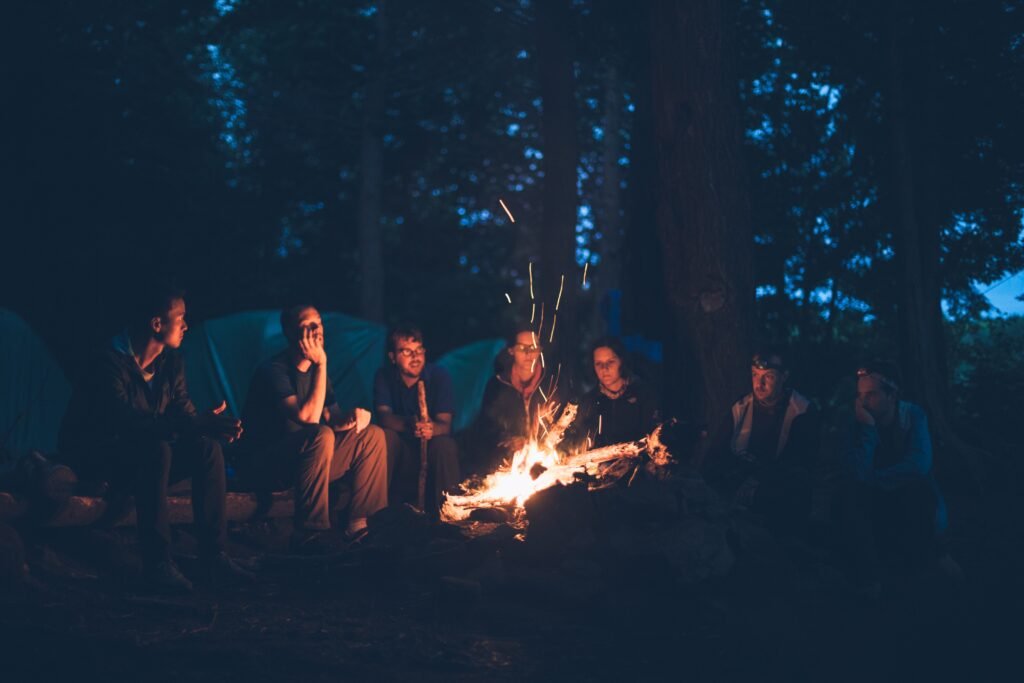
Setting Up Camp for Maximum Enjoyment
The way you set up your campsite can significantly impact your overall camping experience. Taking the time to choose the right campsite, level the ground, and organize your gear can make your stay more comfortable and efficient. Here are some tips for setting up camp for maximum enjoyment.
Choosing the Right Campsite
Selecting the right campsite is crucial for a comfortable and enjoyable camping experience. Look for a level and well-drained area to set up your tent. Avoid low-lying spots that may collect water in case of rain. Consider proximity to amenities such as restrooms, water sources, and recreational areas based on your preferences and needs. Also, be mindful of any campground rules and regulations regarding campsite placement.
Leveling the Ground for Sleeping
Ensuring a level sleeping area is essential for a good night’s sleep. Before setting up your tent, clear any rocks, sticks, or debris from the ground. Use a tent footprint or groundsheet as a protective layer to prevent damage to your tent floor. If the ground is uneven, use a camping shovel or trowel to dig shallow trenches or fill in depressions to create a more level surface.
Setting up Tents Correctly
Properly setting up your tent is crucial for stability and protection from the elements. Follow the manufacturer’s instructions and familiarize yourself with the tent setup before your camping trip. Ensure that the tent is secure by staking it down and using guylines if necessary. Check for any tears, holes, or worn-out areas in the tent fabric and repair them if needed. A sturdy and well-erected tent provides a reliable shelter during your camping adventure.
Creating a Comfortable Sleeping Area
Making your sleeping area comfortable is essential for a good night’s sleep. Lay down a groundsheet or tarp to create a barrier between your sleeping bag and the ground. Use a sleeping pad or air mattress for added comfort and insulation. Arrange your sleeping bags and pillows to suit personal preferences. Customize your sleeping area with warm blankets, cozy sleeping bags, and extra cushions for a comfortable camping experience.
Organizing Campsite for Efficiency
Efficient organization of your campsite can significantly enhance your overall camping experience. Set up designated areas for different activities such as cooking, eating, sleeping, and relaxation. Use storage containers or bags to keep your gear organized and easily accessible. Properly label items to ensure quick and convenient retrieval. Organizing your campsite minimizes clutter and maximizes your enjoyment of the outdoor space.
Creating a Cozy Outdoor Living Space
Creating a cozy outdoor living space can make your campsite feel like home away from home. Arrange camping chairs or hammocks around the campfire or picnic area for relaxation and socialization. Hang a clothesline or string up a tarp to provide shade or shelter. Bring along outdoor rugs or mats to define your living space and add comfort underfoot. Adding personal touches such as decorative lights or a portable speaker can further enhance the ambiance and make your campsite feel inviting.
Building a Safe and Efficient Campfire
A campfire is not only functional but also contributes to the overall camping experience. When building a campfire, choose a safe and designated area away from tents, trees, and other flammable materials. Clear any debris or dry vegetation from the surrounding area to minimize the risk of fire spreading. Stack firewood or arrange logs in a teepee shape to promote airflow and efficient burning. Always keep a bucket of water or a fire extinguisher nearby for safety purposes.
Utilizing Campsite Lighting
Good lighting is essential for safety and convenience during your camping trip. Set up campsite lighting to illuminate pathways, cooking areas, and other areas of your campsite. LED lanterns, string lights, or headlamps are all excellent options for providing ample lighting. Consider solar-powered lights for a greener and more sustainable lighting solution. Proper lighting enhances visibility and allows you to enjoy your campsite well into the evening hours.
Delicious Camping Meals and Snacks
One of the highlights of camping is enjoying delicious meals and snacks in the great outdoors. From cooking over the campfire to preparing quick and easy recipes, here are some tips for tasty camping meals and snacks.
Meal Planning and Preparation
Meal planning is essential for a successful camping trip. Before your departure, create a menu and plan your meals accordingly. Opt for simple and easy-to-cook recipes that require minimal preparation and ingredients. Prepare meals in advance, such as marinating meat or pre-chopping vegetables, to save time at the campsite. Consider pre-measuring ingredients and storing them in resealable bags or containers to further streamline meal preparation.
Campfire Cooking Techniques
Cooking over the campfire is an integral part of the camping experience. Familiarize yourself with different campfire cooking techniques to expand your culinary options. Use a grill grate or tripod over the campfire to grill meats, vegetables, or even pizza. Wrap food in foil and place it directly in the coals for a delicious and easy cooking method. Invest in a cast iron skillet or Dutch oven for versatile cooking options over the fire.
Easy and Tasty Camping Recipes
Camping meals can be both easy to make and delicious. Consider recipes that require minimal ingredients and preparation time. Some popular camping recipes include foil packet meals, such as foil-wrapped potatoes with toppings, or foil-wrapped fish with herbs and lemon. Skewers with marinated meats and vegetables are also simple and flavorful options. For breakfast, make-ahead breakfast burritos or pancakes cooked on a griddle over the campfire are convenient and satisfying choices.
Snack Ideas for Outdoor Adventures
Snacks are essential for fueling outdoor adventures while camping. Pack a variety of portable and non-perishable snacks to keep you energized throughout the day. Bring trail mix, granola bars, dried fruits, or jerky for quick and easy snacking. Fresh fruits like apples, oranges, or grapes provide a refreshing and healthy option. Don’t forget to bring plenty of water and stay hydrated throughout your camping trip.
Proper Food Storage and Handling
Proper food storage and handling are important to ensure food safety while camping. Keep perishable items in coolers with ice or ice packs to maintain their freshness. Store raw meats separately and at the bottom of the cooler to prevent cross-contamination. Keep a food thermometer on hand to check the internal temperature of cooked meat. Discard any leftovers promptly and follow campground rules and regulations regarding food storage and disposal.
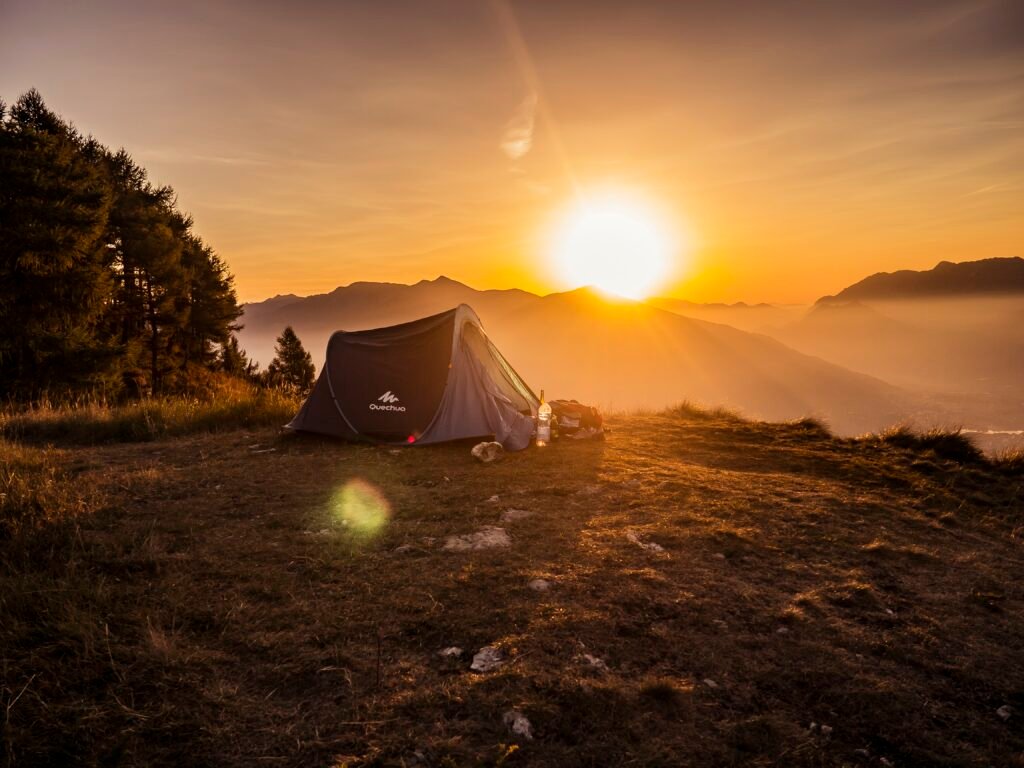
Stay Safe and Prepared in the Wilderness
Safety should always be a top priority when camping in the wilderness. Being prepared and knowledgeable about potential risks and how to handle them can make your camping trip safer and more enjoyable. Here are some tips to stay safe and prepared in the wilderness.
Knowing and Following Campground Rules
Each campground may have specific rules and regulations regarding various aspects of camping. It is essential to familiarize yourself with these rules and follow them diligently. Pay attention to regulations regarding campfires, noise levels, wildlife encounters, and waste disposal. By respecting and adhering to the campground rules, you contribute to maintaining a safe and harmonious camping environment for everyone.
Emergency Preparedness and First Aid
Being prepared for emergencies is crucial while camping. Pack a well-equipped first aid kit and make sure everyone in your camping group knows its location and contents. Familiarize yourself with basic first aid principles and procedures. Be prepared for common camping injuries such as cuts, sprains, insect bites, and allergies. Additionally, bring emergency supplies such as a whistle, flashlight, extra batteries, and a portable phone charger.
Dealing with Wildlife Encounters
Camping in the wilderness often means encountering wildlife. It is important to respect wildlife and observe from a safe distance. Avoid approaching or feeding wild animals as it can lead to dangerous situations for both humans and the animals. Keep all food and scented items stored properly to prevent attracting wildlife to your campsite. If you encounter wildlife, remain calm, back away slowly, and make loud noises to discourage them from approaching.
Avoiding Poisonous Plants and Insects
While exploring nature, it is important to be aware of poisonous plants and insects. Familiarize yourself with common poisonous plants in the area and learn to recognize them. Educate yourself about dangerous insects such as spiders, ticks, or mosquitoes, and take appropriate measures to prevent bites or stings. Consider wearing protective clothing, using insect repellent, and inspecting yourself and others for ticks after hiking or spending time outdoors.
Staying Hydrated and Protecting from the Sun
Staying hydrated is crucial while camping, especially in hot or dry weather conditions. Drink plenty of water throughout the day to prevent dehydration. Consider bringing a water filtration system or purification tablets to ensure a clean water source while camping. Protecting yourself from the sun’s harmful rays is also essential. Wear sunscreen with a high SPF, protective clothing, and a wide-brimmed hat. Seek shade during the hottest parts of the day and avoid prolonged sun exposure.
Navigating and Reading Maps
Navigating and reading maps is an important skill to have while camping in the wilderness. Familiarize yourself with the area and study maps before embarking on hikes or outdoor activities. Pay attention to trail markers and signs to ensure you stay on the right path. Consider using a compass or GPS device to assist with navigation. It is also wise to inform someone of your planned activities and expected return time in case of emergencies.
Fun Activities to Enjoy while Camping
Camping provides ample opportunities to engage in a variety of outdoor activities. Whether you prefer exploring nature or relaxing by the campsite, here are some enjoyable activities to consider during your camping trip.
Hiking and Exploring Nature Trails
Hiking is a popular activity while camping, offering a chance to immerse yourself in nature and discover breathtaking landscapes. Research trails in the area and choose ones that suit your skill level and preferences. Pack appropriate footwear, sunscreen, and plenty of water. Take your time, observe the surroundings, and enjoy the beauty of the wilderness.
Fishing and Boating
If your camping trip takes you near a body of water, fishing and boating are excellent activities to engage in. Research fishing regulations and obtain any necessary licenses or permits. Bring your fishing gear and enjoy the tranquility of casting a line. If boating is allowed, consider kayaking, canoeing, or paddleboarding for a more immersive experience on the water.
Swimming and Water Sports
Camping near a swimming area or beach gives you the opportunity to cool off and enjoy water-based activities. Pack swimwear, towels, and water shoes for a refreshing swim. If the campground allows, indulge in water sports such as snorkeling, tubing, or water skiing. Remember to prioritize water safety and abide by any rules or guidelines set by the campground or park authorities.
Bird Watching and Wildlife Spotting
Camping provides an ideal opportunity to observe and appreciate the local wildlife and bird species. Bring a pair of binoculars or a camera with a zoom lens to enhance your wildlife spotting experience. Research the native wildlife in the area and learn about their habits and habitats. Practice patience and quiet observation to increase your chances of spotting various animals and birds.
Stargazing and Nighttime Activities
The night sky offers a mesmerizing display of stars, constellations, and celestial bodies. Take advantage of the darkness and limited light pollution by engaging in stargazing activities. Learn about different constellations and use smartphone apps or star charts to identify them. Consider bringing a telescope or binoculars for a closer look at the sky. Additionally, enjoy nighttime activities such as storytelling, campfire games, or moonlit hikes.
Photography and Nature Journaling
Capture the beauty of your camping trip through photography and nature journaling. Bring a camera or smartphone to document the scenery, wildlife, and memories. Explore different photography techniques such as landscape photography or macro photography of plants and insects. If you enjoy journaling, bring a notebook and record your observations, thoughts, and experiences in nature.
Nature Crafts and Scavenger Hunts
Engage in nature-inspired crafts and scavenger hunts to add a creative element to your camping trip. Collect fallen leaves, pinecones, or rocks to create art or crafts at the campsite. Use items found in nature to make jewelry or decorations. Additionally, create a scavenger hunt for your camping group, encouraging exploration and discovery of the surrounding environment.
Storytelling and Campfire Games
Gather around the campfire and share stories or play group games to create a sense of camaraderie and entertainment. Share ghost stories, personal anecdotes, or traditional folklore. Engage in campfire games such as charades, truth or dare, or word association games. These activities foster connections and create memorable experiences while camping.
Tips for Camping in Different Seasons
Camping in different seasons offers unique experiences and requires specific preparations. Here are some tips to ensure a comfortable and enjoyable camping trip in each season.
Spring Camping Tips
Spring camping is characterized by blooming flowers, vibrant greenery, and moderate temperatures. However, weather conditions can still be unpredictable. Pack layers of clothing to accommodate temperature changes. Bring rain gear and be prepared for wet conditions. Spring can also be a peak season for bugs, so pack insect repellent and consider using a bug net around your camping area.
Summer Camping Tips
Summer camping means longer days, warmer temperatures, and plenty of outdoor activities. Protect yourself from the sun by applying sunscreen frequently and staying hydrated. Pack lightweight and breathable clothing suitable for hot weather. Consider camping near bodies of water to cool off and enjoy swimming or water sports. Be mindful of potential thunderstorms and seek shelter if necessary.
Fall Camping Tips
Fall camping offers beautiful foliage, cooler temperatures, and fewer crowds. Pack warm clothing, hats, and gloves to stay comfortable during chilly nights. Bring extra layers in case of sudden temperature drops. Fall weather can be variable, so check the forecast and be prepared for changing conditions. Embrace the beauty of fall foliage by going on hikes or scenic drives.
Winter Camping Tips
Winter camping requires special preparation and equipment for staying warm and safe. Invest in a four-season tent designed for winter conditions. Bring appropriate cold-weather sleeping bags, insulated sleeping pads, and warm clothing. Pack hand warmers, extra blankets, and hot water bottles to provide additional warmth. Be cautious of snow conditions, potential avalanches, and extreme weather. Always check weather forecasts and camp in designated winter camping areas.
Leave No Trace and Eco-Friendly Camping
Camping responsibly and practicing Leave No Trace principles are essential for preserving the environment and future camping experiences. Here are some tips for eco-friendly camping.
Respecting Nature and Wildlife
Show respect for nature and wildlife by observing them from a safe distance and not interfering with their natural behavior. Do not disturb or feed wildlife, as this can have negative consequences for their health and survival. Adhere to designated paths and trails to minimize soil erosion and habitat disturbance. Additionally, avoid damaging or collecting natural items such as plants, rocks, or artifacts.
Proper Waste Disposal and Recycling
Dispose of waste properly and follow campground guidelines for recycling and garbage disposal. Pack out all non-biodegradable trash and dispose of it in designated containers. Avoid littering and aim to leave your campsite cleaner than you found it. Separate recyclable items and dispose of them in appropriate recycling bins. Reduce waste by using reusable plates, cups, and utensils instead of single-use options.
Minimizing Noise and Light Pollution
Minimize noise levels to respect fellow campers and the tranquility of the natural environment. Observe quiet hours set by the campground authorities. Avoid loud music or excessive noise that may disturb wildlife or other campers. Keep lighting to a minimum at night to reduce light pollution and allow for stargazing. Use low-impact lighting options like red lights or dimmed lanterns to minimize the disruption of nocturnal animals and their habitats.
Using Biodegradable and Environmentally-Friendly Products
Consider using biodegradable and environmentally-friendly products while camping. Opt for biodegradable soaps, shampoos, and cleaning products to minimize the impact on natural water sources. Choose eco-friendly sunscreen and insect repellent that are safe for aquatic life. Utilize rechargeable batteries instead of single-use disposable batteries. Minimize packaging waste by opting for bulk food items or resealable containers.
Leaving Campsites Better Than You Found Them
Aim to leave your campsite better than you found it by practicing good campsite stewardship. Clean up any trash or debris left by previous campers. Restore natural features such as rocks or branches that may have been moved or disturbed. Use designated fire rings or pits for campfires rather than creating new ones. By leaving your campsite in a better condition, you contribute to the sustainability and enjoyment of the camping area for future campers.
Camping can be an enjoyable and rejuvenating experience if you approach it with the right tips and preparation. From securing food to engaging in fun activities, these comprehensive tips will ensure a memorable camping trip for everyone. Embrace the beauty of nature, respect the environment, and create lasting memories with your loved ones during your next camping adventure.

